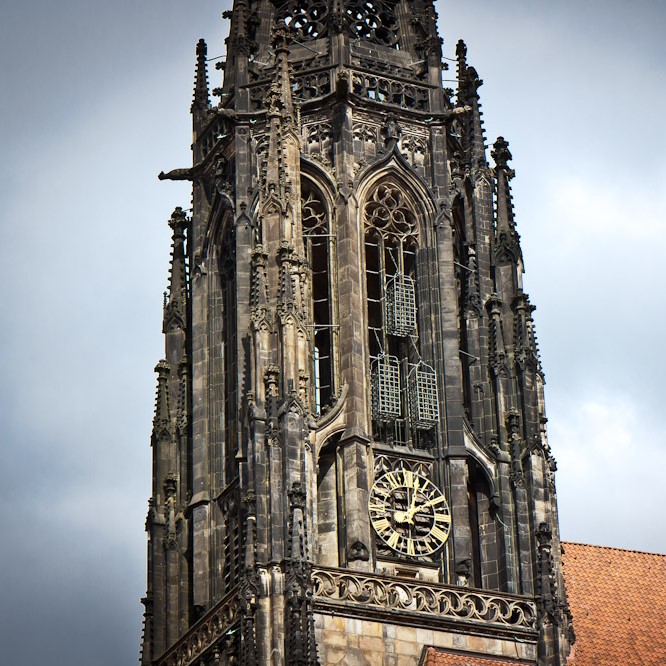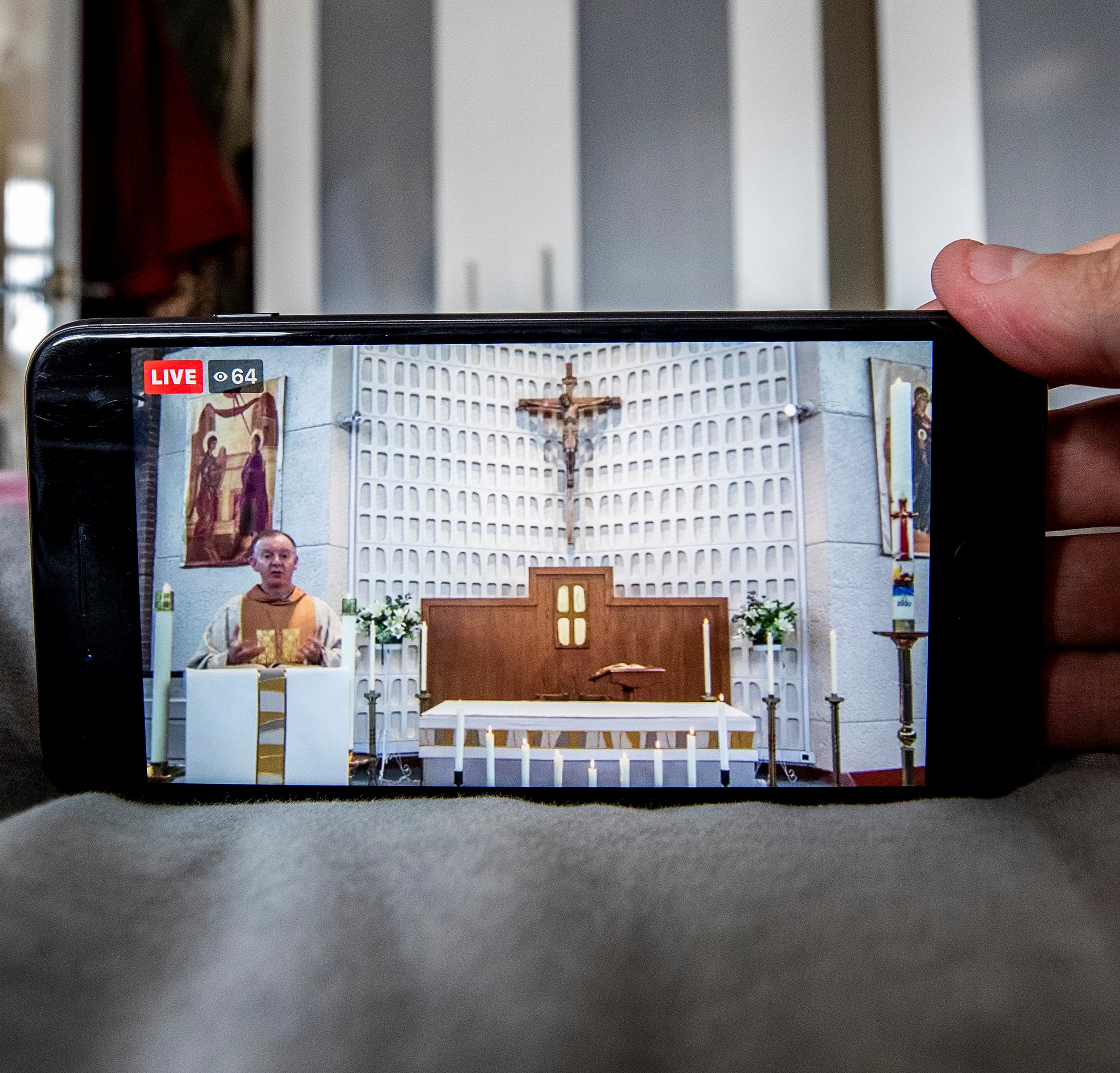Numbers of people accessing church websites and watching livestream Masses increased in many places during lockdown between 300 to 1000%, and the numbers have remained constant.
Kelley used to go to Mass as a child and young adult; but, at the age of 42, she had stopped. Her mother told her that she was attending mass in her parish livestream on her computer and she sent her the link. Out of curiosity, she had a look and discovered that she was drawn to it. As to whether she will return to going to her local parish when the pandemic is over, that’s another question. She doesn’t know anyone there and doesn’t think she will fit in because the parishioners are all old. Will she be one of the “on-line prayers” who cross the threshold of the church when restrictions cease?
We hear that many of those who have always regularly attended Sunday Mass have been very happy accessing Mass on-line at home. Anecdotal evidence suggests that some may want to “go to church” there when churches re-open as long as Mass continues to be accessible on-line. It’s easy to see why the elderly and disabled people might find this option attractive although they would miss out on the community aspect of the parish experience.
We can only guess the demographic of the increased number of people accessing Mass on-line. I have to ask why the numbers have increased as they have – and more importantly, I have to ask what percentage of these people are prospective “returners” to the Church. I am the coordinator of Landings Scotland and the North. Landings is a series of relaxed, informal, lay-led meetings, based on faith-sharing within a small group, that offer a safe and supported “landing place” for Catholics who have been away from the Church and are thinking about coming back.
There are many reasons why people stop practising their faith: some may have had unpleasant or painful experiences in their church community, others feel uncomfortable with certain teachings of the Church, others will simply have drifted away, whilst others may have been baptised but never had any experience of Church.
The pain and challenge of this global Covid moment seems to have unleashed a profound thirst for community lying deep in the human heart. A new spirit of appreciation of each other, of thanksgiving, has emerged like at no time I have lived through. Covid has made us more human. Research shows that 2% of the incredible 400% (and rising) baptised Catholics missing from our communities (4/5 of us) do take up the invitation to physically return given the right support.
What, though, is the right support for someone like Kelley? Given her age and background, she would only have to go to Confession before she could return to the practice of her faith and to Holy Communion; but this may feel like a major hurdle for her. So, what would entice her back to practicing her faith for real after Covid? Many returners tell us that a conversation with a friend is one of the most powerful tools.
Conversations of this kind can take place with friends and family, who mention that during the pandemic, they have been praying for people they know and love who are suffering with Covid 19 and for their relatives. Prayer services are mentioned on the news and entries on Twitter and Facebook include references to people praying for the end of the pandemic. It’s been a time when people are asking the “big questions” – Where did I come from? Where am I going? Why is this happening? These conversations might lead to an introduction and, perhaps, an invitation to a Landings programme.
A Landings session takes place in a small group. It includes conversation, a brief prayer experience and gestures of hospitality. One person in the group tells their faith life story each week. They then reflect on contemporary Catholic themes. This inevitably facilitates the context for getting to know a few others very well as they share a common experience. It is a simple process for reaching out and supporting Catholics who have been away from the Church or who struggle in their relationship with God and the Church There are no strings attached and no pressure for the person to return to the Church; there are no questions, no judgements, there are simply a few words of response to others in the meeting.
The Landings programme is not for everyone and many people looking to reconnect with their faith and the Church will do so in other ways. However, many people looking to reconnect welcome the opportunity to reflect on their questions, concerns and experiences with others and to get to know a few other people before venturing into the wider parish community. Returners tell us that what they need in their first contact with Church again is someone they know will understand them – not the priest, not the parish secretary but an ordinary lay person, who may have returned to the Church themselves at some point.
Having said that, priests are essential to the process; these programmes cannot thrive without their support and encouragement. Priests who are livestreaming Masses might consider including a link to the Landings website at the end of the Mass to let people know about these groups. And, parish priests, who are considering ways to reach out to the people who might want to return to the Church, might look at the Landings websites and find out how about training opportunities and explore ways to start up a group.
Margaret Johnston is coordinator of Landings Scotland and the North.



 Loading ...
Loading ...
What do you think?
You can post as a subscriber user ...
User comments (0)